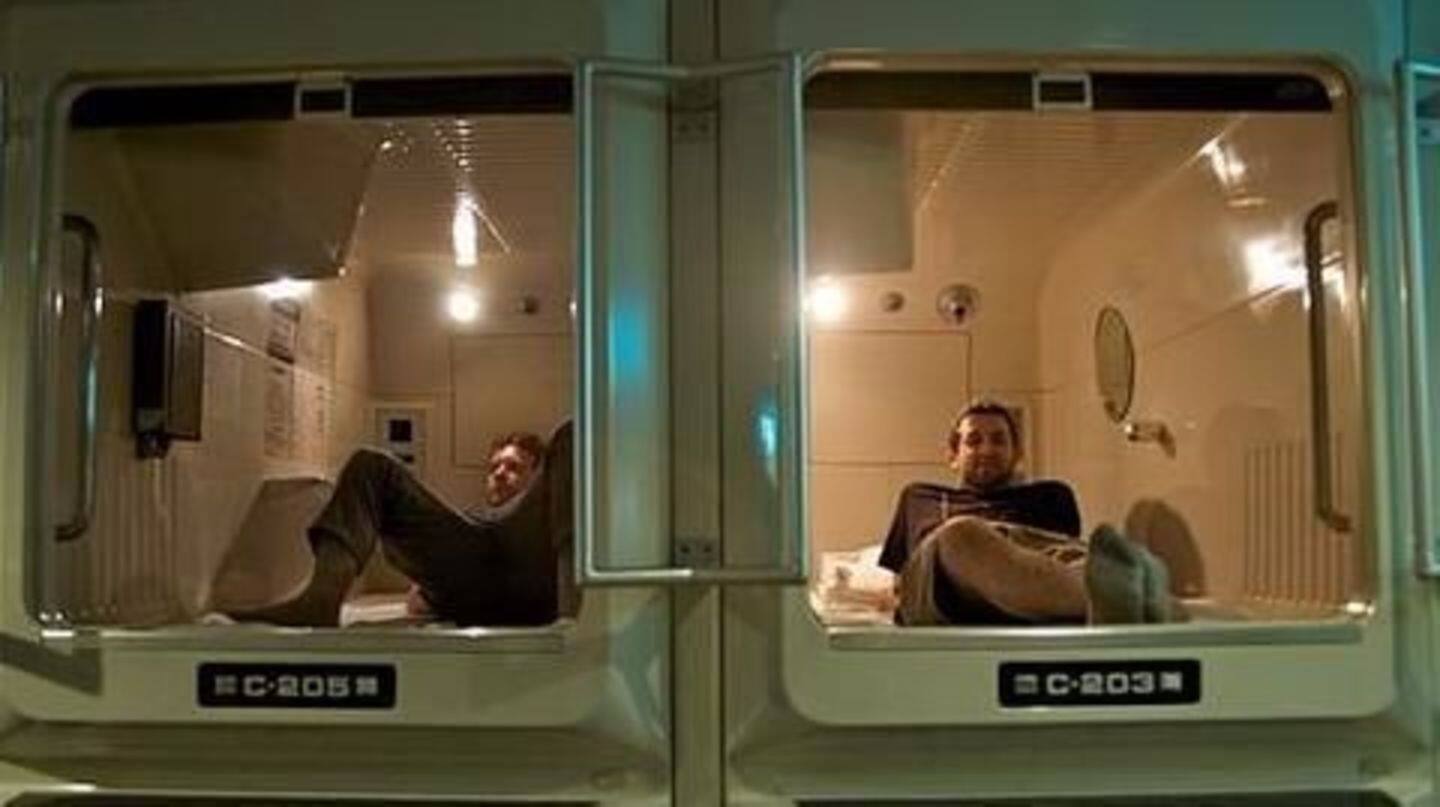
Urbanpod: India's very own capsule hotels in Mumbai
What's the story
Presenting Mumbai's infamous space crunch as a hospitality fad, two entrepreneurs Hiren Gandhi and Shalabh Mittal have opened Urbanpod, India's first capsule hotel opposite Santa Cruz Electronic Export Processing Zone in Andheri, Mumbai.
Different from regular hotel rooms, Urbanpod accommodates its guests in small capsules equipped with superior technology reminiscent of sleeping pods in science fiction.
Let us know more on these rooms!
Information
What is a capsule hotel?
Capsule hotels aim to provide affordable accommodation. Different from regular hotel rooms, it aims to accommodate maximum number of people within a given amount of space, by stripping hotel rooms of superfluous facilities, limiting them to bare minimum.
Target audience
Who are they popular with?
Capsule rooms equipped with automated amenities and minimal human intervention, as well as its eerie similarity to sleeping pods in science fiction movies could attract recluses and sci-fi junkies.
Urbanpod's co-founder Hiren Gandhi notes, "Our main target segment will be people from 18-50 years, who are students, entry level executives, pilgrims among others who are looking for affordable, hygienic and safe accommodation."
Information
Facilities at Urbanpod
Urbanpod, Andheri has 140 rooms with, priced at Rs. 2000/night. Room area ranging from 50 to 90 square feet, holds facilities including bed, dresser, power sockets and Wi-Fi, along with a separate locker facility for luggage. Bathrooms are provided on a sharing basis.
Strategy
What does Urbanpod plan to do?
Urbanpod plans to establish itself in major metros in India, planning to have at least a 1000 rooms over the next few years, possibly through a management and franchise investment model.
"With an investment of Rs. 5-15 crore per hotel depending on the locality, we are looking at an average of Rs. 10-20 crore investment over the next three years," notes co-founder Hiren Gandhi.
Applications
Applying the capsule model to housing
High costs of housing make it unaffordable for many in major cities. Capsule model could hence be applied to urban housing in the near future and is already being considered in major cities.
Tiny living movement in America for instance, saw debt-ridden people move into compact living spaces.
Further, developers in London are looking to build smaller flats with 6.7 square metre floor area.
Conclusion
The downside
Capsule hotels in Japan were priced at $30-50, making it affordable for many. Comparatively, Urbanpod's tariffs may seem exorbitant, especially when the capsules themselves are built around cost-cutting. Although this is commensurate with Mumbai standards, it renders itself unaffordable for many.
Application to housing would bring focus on minimalism disregarding crucial aspects of personal well being including access to personal space and privacy.